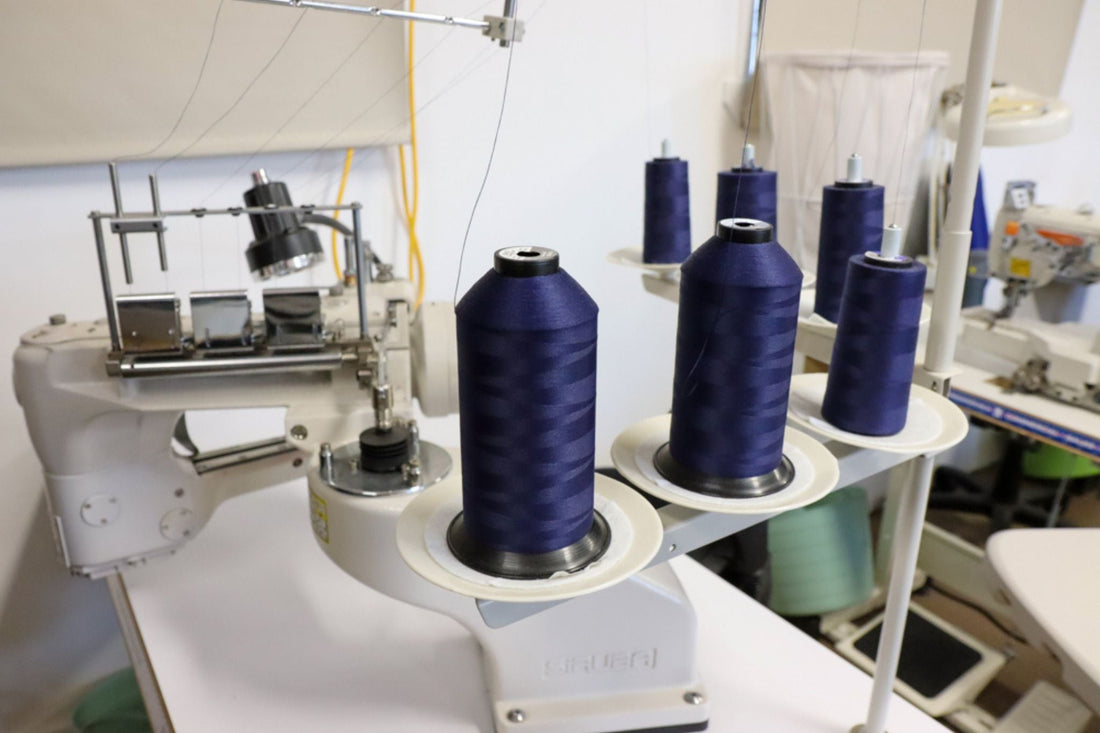
Why Ethical Manufacturing Matters – The True Cost of Fast Fashion
Share
In today’s fast-paced fashion industry, trends change rapidly, and clothing is produced faster than ever. While this allows consumers to access affordable, stylish pieces, it comes at a hidden cost—one that affects workers, the environment, and the long-term sustainability of the industry.
Fast fashion has led to exploitation, pollution, and unsustainable production cycles, making it crucial for brands to rethink their approach and embrace ethical manufacturing. But what does ethical manufacturing mean, and why should businesses make the shift? At Ethical Edge Collective, we believe that fashion should be fair, sustainable, and transparent, ensuring that every garment is made with integrity.
In this blog, we’ll explore:
- The true cost of fast fashion
- What ethical manufacturing entails
- How brands can transition to a more responsible approach
Let’s dive into why ethical manufacturing is no longer an option but a necessity for the fashion industry.
The True Cost of Fast Fashion
Fast fashion prioritises speed and affordability over quality and ethics. This business model relies on cheap labor, mass production, and synthetic materials, creating a cycle of waste and worker exploitation. Here’s what often goes unseen:
1. Poor Working Conditions & Unfair Wages
Many fast fashion brands manufacture in countries where labor laws are weak or poorly enforced. Workers—often women and children—are subjected to:
- Extremely low wages that do not cover basic living expenses
- Long hours in unsafe factory conditions
- Lack of labor rights, making it difficult to protest mistreatment
A prime example of this is the 2013 Rana Plaza factory collapse in Bangladesh, where over 1,100 garment workers died due to unsafe conditions. This tragedy exposed the dark side of fast fashion and highlighted the urgent need for ethical manufacturing.
2. Environmental Destruction
Fast fashion is one of the most polluting industries in the world. Its impact includes:
- High water consumption – It takes 2,700 litres of water to make one cotton t-shirt—enough drinking water for one person for 2.5 years.
- Toxic dyes and chemicals – The fashion industry is responsible for 20% of global wastewater pollution, contaminating rivers and drinking supplies.
- Textile waste – Over 92 million tons of textiles end up in landfills each year, as fast fashion promotes disposability over durability.
By prioritising ethical manufacturing, brands can reduce their environmental footprint and contribute to a more sustainable future.
3. Low-Quality, Disposable Clothing
Fast fashion encourages consumers to buy more and wear less. The average consumer buys 60% more clothing today than in 2000, but each item is only kept for half as long. Why? Because cheap materials and poor craftsmanship lead to garments that fall apart after just a few washes.
Ethical manufacturing promotes quality over quantity, ensuring clothes are designed to last—a shift that benefits both consumers and the planet.
What is Ethical Manufacturing?
Ethical manufacturing is the opposite of fast fashion. It prioritises: ✅ Fair wages & safe working conditions ✅ Sustainable materials & eco-friendly production ✅ Quality craftsmanship over mass production
At Ethical Edge Collective, we ensure that every product we create aligns with these principles. Let’s take a closer look at what sets ethical manufacturing apart.
1. Fair Wages & Ethical Labor Practices
Unlike fast fashion brands that outsource production to low-wage factories, ethical manufacturers pay fair wages and ensure safe working conditions.
At Ethical Edge Collective, we manufacture in Brisbane, Australia, where workers are protected by labor laws and paid fairly. Our manufacturing process is completely transparent, allowing brands to trace every step of their production.
2. Sustainable Materials & Eco-Friendly Practices
Ethical manufacturing focuses on responsibly sourced materials that minimize environmental harm. Some of the best options include:
- Organic cotton – Grown without harmful pesticides
- Recycled polyester (Repreve®) – Made from post-consumer plastic waste
- Tencel (Lyocell) – A biodegradable fabric with a low environmental footprint
We carefully select sustainable fabrics and limit waste through efficient cutting techniques and minimal overproduction.
3. Transparency & Traceability
Consumers today want to know who made their clothes and under what conditions. Ethical manufacturers provide full transparency, allowing brands to:
- Visit the production site and meet the makers
- Understand material sourcing and supply chains
- Share production details with consumers
At Ethical Edge Collective, we encourage brands to showcase their ethical manufacturing process, empowering them to build trust with their customers.
How Brands Can Transition to Ethical Manufacturing
Switching to ethical manufacturing doesn’t have to be overwhelming. Here’s how brands can start making the shift:
1. Partner with an Ethical Manufacturer
Choosing the right manufacturing partner is key. Work with an Ethical Clothing Australia-accredited manufacturer like Ethical Edge Collective, which guarantees fair labor practices and high-quality production.
2. Focus on Quality Over Quantity
Instead of producing large volumes of low-cost items, ethical brands focus on small-batch, high-quality production. This reduces waste and ensures customers receive durable, long-lasting garments.
3. Choose Sustainable Fabrics
Work with a manufacturer that offers eco-friendly fabric options, such as:
- Organic & recycled materials
- Plant-based fibres
- Non-toxic dyes and finishes
4. Educate Consumers
Consumers are more likely to support ethical brands when they understand why it matters. Share your journey, highlight your ethical manufacturing partner, and educate your audience about the importance of conscious consumption.
Final Thoughts: The Future is Ethical
Fast fashion may offer cheap prices, but it comes at a devastating cost. Ethical manufacturing is the solution to building a sustainable, fair, and responsible fashion industry.
At Ethical Edge Collective, we are committed to: ✔️ Fair wages and safe working conditions ✔️ Sustainable materials and eco-conscious practices ✔️ High-quality production that supports ethical brands
If you’re looking for a trusted partner in ethical manufacturing, get in touch with us today. Let’s create fashion that makes a difference—for people and the planet.
Ready to take the next step in ethical manufacturing? Contact Ethical Edge Collective today and start your journey towards sustainable production!
